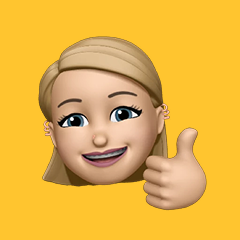Overview
I joined Class Manager at an exciting time, just as the team was beginning to plan a new version of the product. I was involved from the early discovery phases, which meant I had a strong impact on the product strategy and the design of the improved version of the web and native apps. Throughout the project, I learned a lot from the challenges, mistakes, and successes faced.
I took on a broad role, handling regular product design tasks, as well as brand and website design, implementation and maintenance of a design system, and created and delivered product demos to users and the wider team to showcase new features and updates.
Project Team

Product Designer

Front-end Developer

Front-end Developer

Back-end Developer

Back-end Developer

QA Engineer
Scope
In December 2024, the goal was to launch an MVP of the product in the United States, then roll it out to other countries. We took time to understand which features people currently use and spoke to owners, admin assistants and teachers in the USA.
Research
User Research
To date, I have carried out 40+ sessions with users including discovery interviews, moderated tests, unmoderated tests and product demos. It was important to gather feedback from a mixture of users which included owners of studios and clubs, teachers, parents.
I ensured insight was collected from all sizes of schools from large franchises to small schools. I also ensured that I gathered pain points from dance studios who have not used class management software before.
Learnings
To research more broadly. Even though the business plan was to release in the US, the initial research was only with US current and prospective businesses so this caused a few setbacks and issues when trying to integrate billing and class management systems for other countries like the UK and Australia.
If I was to start this project again I would ensure that research was done with all prospective users to reduce the need to change the backend logic in the future and make sure developers are aware of patterns that will need to be supported in the future.
Ideate
Rapid Prototyping
As the only designer on this 50+ screen product, I needed to work fast and iterate often. I created quick wireframes to test ideas early and shared them with stakeholders to collect feedback and improve the designs quickly.
Communication and Hand-off
I vastly improved my communication and ability to present my ideas for a developer hand-off with low fidelity wireframes to encourage in-depth conversations about the problem we are trying to solve. I helped developers by creating reusable design patterns and components to implement the best outcome for the users.
Utilising AI
Recently, I’ve started using AI tools to create high-fidelity mockups filled with realistic, relatable content and calculations. This helped with running better user tests and participants could imagine how things would work in practice.
For example, I recently designed and tested the create class flow and a flexible billing calculator. This is a very compelling feature for dance studios who have varying pricing models and helps to build the trust that we will manage their billing correctly.
Implement
Solving Problems
Here’s a few examples of specific user problems and solutions.

“My customers are always asking what uniform they need for their class.”
Solution: Added a uniform upsell feature where customers are prompted to buy certain products when they enrol for classes.

“I need to see spaces where I can move classes around and manage my schedule and set up my timetable at the start of the year avoiding room and staff clashes”
Solution: We designed a flexible calendar that can be sorted by teacher and room to provide a visual way to rejig the timetable and identify clashes with instant feedback on possible issues.
Design
High-Fidelity
I used low-fidelity wireframes early in the process to discuss and test ideas with the team. Later, I created high-fidelity mockups and interactive prototypes to investigate and test flows with users and guide developers with implementation of new design patterns.
Design System
The previous version of Class Manager had seen many short-term design contractors come and go, so there wasn’t a clear design language. I built a solid design system that the team can rely on moving forward and adapt for future projects.
Accessibility
One key feature from user research was personalisation—each business wanted their app to be representative of them. I designed a flexible colour system that could adapt to different brands while meeting accessibility standards (AAA compliance). We tested colour combinations to make sure they worked well on all screen sizes and devices and did not affect the usability of the program.
Testimonials
"I am loving this so far and my families are loving it too!"
"Of all the class management software I have tried, this is by far the easiest to use."







.png)
.png)
.png)
.png)
.png)
.png)






